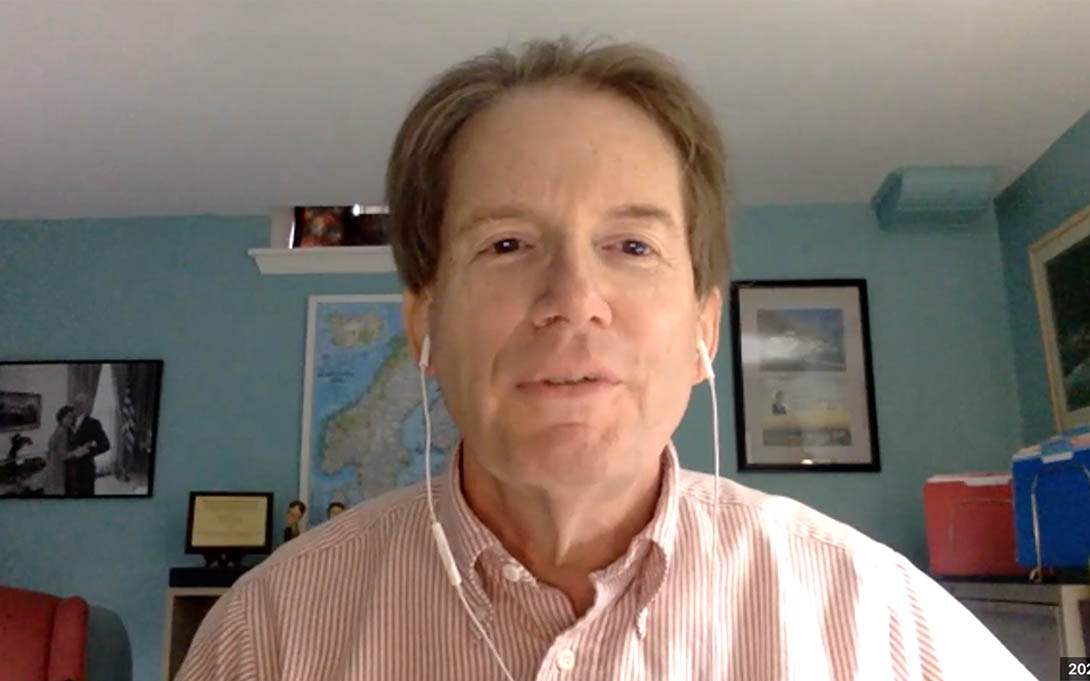
The Ford School's professor Barry Rabe has been commenting on the many forces at work as the U.S. moves to tackle climate change, as well as introduce more eclectic vehicle (EV) manufacture and infrastructure.
Here is a review of his recent media appearances:
Trump is attacking electric vehicles. Automakers already bet their future on them, CNN, September 29, 2023
The possibility of a sudden shift [of policy] would be pretty shocking for the industry to absorb,” said Barry Rabe, a professor of public policy and environmental policy at the University of Michigan. “I can’t imagine the industry is going to want to be jerked back and forth every four or eight years.”
As a result of consumer demand and regulations, General Motors has set a goal of phasing out the sale of all internal combustion vehicles by 2035, and Ford has said it hopes EVs make up almost half of its sales by 2030. GM even changed its logo to look like an electrical plug.
“For a major manufacturer to bet that the future of transportation is ICE-powered vehicles seems like a tougher and tougher case to make,” said Rabe.
Ford battery plant delay emboldens Hill critics, E&E News, September 27, 2023
Ford’s move to freeze work at its Marshall plant could have bigger ripple effects for Democrats and the national push for adoption of electric vehicles, which has received a chilly reception in some corners of the Mitten State.
“I think for Democratic supporters, it puts them in an awkward or difficult position. … You’re not saying ‘complete withdrawal,’ but some kind of a pause,” said Barry Rabe, a professor of public policy at the University of Michigan.
“That puts an even bigger question mark on the future of electric vehicle production in the United States in a week where Michigan’s gonna get national attention because a sitting and former president are there pitching their views on the merits of the IRA [Inflation Reduction Act] and these vehicles,” said Rabe.
Michigan Legislature tackles ambitious climate legislation. How far will it go?, Great Lakes Now, September 26, 2023
Major climate bills, like an aggressive clean energy standard, would likely divide legislators along party lines, said University of Michigan Professor Barry Rabe, a fellow at the Brookings Institute who focuses on policy and climate change. Still, how new laws affect people could depend on where they live, which means location may be as important as party,
“This could really mean different things to different constituencies in terms of economic development and jobs,” he said. “Do you want wind? Do you want to keep a nuclear power plant going?”
Climate legislation also has to last in order to be effective, Rabe said. For any changes to be successful in the long run, lawmakers need a plan in place to make those things happen.
“Can you bake durability into this and make it last and work effectively over a long period of time?” he said. “A lot of Midwestern states, including Michigan, have really struggled with this for years or decades, where you’ll have a short burst, and then it kind of gets dialed back or pulled back.”
Unprecedented federal funding and an ambitious climate agenda from the governor have created a unique opportunity for the legislature to make real progress on laws fighting climate change, Rabe said.
The measure of success, he said, will come down to whether the legislature can not only match the governor’s ambitions, but also create something that’s politically durable.
Why Joe Biden Needs Joe Manchin More than Ever, Newsweek, August 31, 2023
"I think the inflation Reduction Act and the bipartisan infrastructure legislation are really set up to potentially provide substantial benefits for West Virginia, as it begins to accelerate this transition away from fossil fuels," Barry Rabe, a nonresident senior fellow with the Brookings Institution and a University of Michigan professor specialized in energy and environmental policy, told Newsweek.
"Red states, where their entire congressional delegation voted against the IRA, are lining up for the benefits," he added, "which is a super interesting dynamic going into the 2024 election."
4 issues to watch in the gas ban wars, E&E News, August 24, 2023
For the most part, limits on buildings’ gas consumption are still not considered a “high priority” by most governments in the U.S., including local ones, said Barry Rabe, a professor of environmental policy at the University of Michigan.
But the emergence of Berkeley-style policies in Oak Park suggests that such restrictions could keep cropping up across more of the country, he said.
“[If] you throw in the Oak Park phenomenon, maybe the number of cities and states that engage with this continues to grow,” said Rabe.
“As it spreads, it begins to look more and more like a challenge to large industries,” Rabe said.